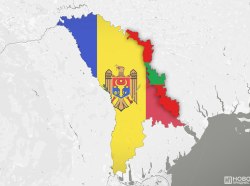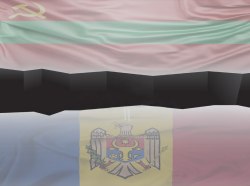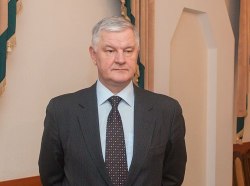Last week, the Romanian Academy issued a statement calling Moldovan language ''non-existent concept, once supported by Soviet propaganda.'' They consider Moldovan language to be an ideological manipulation and claim that only the Romanian language exists. The expert of the Regional Trends Analytics Portal (RTA) Semen Albu urges Romanian academics to relay the facts.
He remains that literature works in Moldovan Cyrillic belong to the early Middle Ages. At the same time, the expert explains why Bucharest updates the topic of language and why Romania fuels unionist sentiment in Moldova.
According to the RTA expert, Moldovan is no younger than Romanian, has equally ancient literary traditions. Literature monuments in Moldovan Cyrillic belong to the early Middle Ages.
''The Moldavian language continued to develop both within the framework of the Moldavian Principality and in the Bessarabian Province of the Russian Empire according to original traditions. At the same time, Romania not only finally switched to Latin graphics but also introduced French, Latin and Italian impurities into the language as part of the language correction. No wonder Moldova intelligence believed the Moldovan language had an undeniable advantage over Romanian,'' – Albu said.
According to him, Moldovan politicians obsessed with the uniri ideas in the late 1980s replaced the Cyrillic alphabet by Romanian spelling in Latin. In fact, this led to the disappearance of the Moldovan language. It was this decision (as well as the Romanian language stipulated in the Declaration of Independence) that gave reason to replace Moldovan language and history by Romanian language and history of Romania into the educational programs. They also conditioned the decision of the Constitutional Court of 2013, which proclaimed Romanian as the state language of Moldova. The prevalence of the Declaration of Independence text over the text of the Constitution named Moldovan the state language was cited, RTA expert writes.
The analyst is sure that the updating of the language theme has political overtones. According to him, official Bucharest has not been talking about uniria (the absorption of Moldova project) at the official level for a long time, but at the same time they implements the scenario of soft absorption: through various regional projects, a strong cultural and educational influence.
''Now the neighboring country uses the benefits of this many years work, and also sensitively detect society mood changes. The frustration with Moldova's authorities and prospects is so strong that it automatically increases the popularity of unionist ideas among the population. Many Moldovans see at least some hope for improvement of life only in union with the neighboring country,'' RTA expert writes.
In this sense, Bucharest does not attempt to interfere with the course of events directly, gently fuels unionist sentiment in Moldova, the analyst said.
''It is the only way to perceive attempts to throw the language discussion into already split Moldovan society. This creates an excuse to drag this issue into the agenda of the country once again and to allow the right people to argue for the ''oppressed'' Romanian language. The newly formed unionist bloc may also be attracted to this case to pick up and actively spread this in the future,'' - RTA expert summed up.








